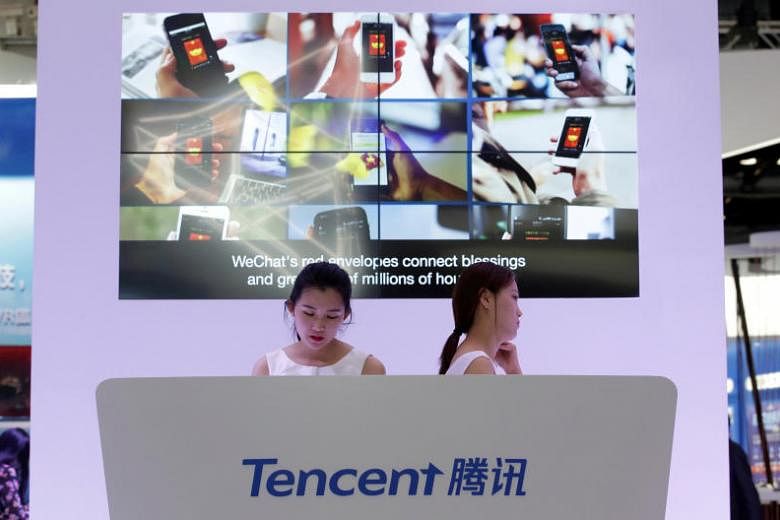BEIJING (BLOOMBERG) - China wants to create the world's next Silicon Valley, but will the world's top inventors and entrepreneurs want to work in an environment cut off from the global Internet?
That is the question now rattling through start-up communities from Beijing to Shenzhen as the country's government takes the first steps towards closing one of the few remaining paths around its strict censorship controls.
Chinese officials are said to have told telecommunications carriers to block individuals from using personal virtual private networks (VPNs) by February.
That would eliminate the way local people, students and expats now access banned websites - to search on Google, connect with friends on Facebook, read stories from the New York Times or check the latest Twitter posts from US President Donald Trump.
China's government plans to allow businesses to keep using VPNs for access to the outside world - if they obtain approval for corporate lines and register their usage.
But it is not clear how easily businesses will get VPNs approved and, even if they do, employees may be out of luck when they work from home or from their smartphones on the road. Ambitious entrepreneurs and start-ups may be hardest hit.
"VPNs are absolutely critical and foundational to almost any business in China, large or small - and especially important for innovative businesses," said Mr Andy Mok, Beijing-based managing director at Red Pagoda Resources, which advises start-ups and other companies in China.
"Denying access to VPNs in China would demolish the entire stack of the start-up ecosystem here."
Already, China operates one of the world's most far-reaching censorship systems.
Companies such as search giant Baidu are required to block certain websites and adjust results for sensitive terms like "Tiananmen Square" and "Falun Gong", while government officials scout for new violations or leaks.
VPNs have allowed people a way around those controls with software that makes it appear like they are accessing the internet from another country.
Many professionals, including academics, freelance photographers and startup workers, would suffer if the new restrictions are imposed as planned.
For example, the founder of a Beijing-based agricultural-technology startup with fewer than 30 employees uses a personal VPN to get information and research from blocked overseas news sites.
The person said the company also uses Facebook and Twitter to promote products to clients abroad - as do many other China-based start-ups seeking to expand internationally. The person declined to be named to avoid inviting government scrutiny.
At a Beijing-based video-sharing company, whose business is to transfer content from sites such as YouTube - which is blocked in China - to domestic sites, a government notice in January signalling the government's intention to crack down on personal VPNs caused panic among the staff because their business is reliant on the technology, according to an employee who declined to be named to avoid scrutiny.
"If they take VPNs away from the business community - unless you're working for a major multinational with a corporate VPN - how is China going to fulfil Li Keqiang's vision of being an innovative nation?" said Mr James McGregor, Shanghai-based Chairman of China Region at APCO Worldwide, a business consultancy.
"What about students, academics, start-ups, small businesses, business travellers in China?"
Chinese regulators for now are trying to assuage fears of a wider crackdown.
The Ministry of Industry and Information Technology issued a statement on Wednesday (July 12) in which it emphasised its original January notice governing VPN use should remain the main point of reference, and promised not to sever legitimate means of accessing the global Internet.
Yet, frequent users are mindful of the country's spotty record on that front.
Many software developers in China rely on overseas code libraries, which may be inaccessible without VPNs.
For instance, the popular developers' site Github was briefly blocked in China in 2013.
"Despite all the advances that China has made, there's still a lot of product innovations that happen abroad that entrepreneurs in China can and need to learn from, and they often learn through overseas news sites," Mr Mok said.
For staff at an entertainment magazine in Beijing, an unstable corporate VPN meant employees switched to using personal VPNs instead, said an editor at the publication, who also requested not to be identified.
In addition to worrying about how to report without Google access, the person flagged the potential hit to morale if a VPN crackdown deprived colleagues and friends of access to sites like Facebook and Gmail, all blocked in China.
Universities may have to worry about their ability to recruit from abroad too.
"Will foreign students come here and study if they aren't sure they'll have access to the global Internet?" asked Mr McGregor.
"I personally have five VPNs on my phone and computer - I don't know if I could live in China without a VPN. It would be a disaster."
For now, he's taking a wait-and-see approach and hoping the new rules would not be as strict as currently planned.
"It often happens in China that the security people and bureaucrats come up with a very tight policy, but it runs up against the needs of running a globalised economy," he said.

